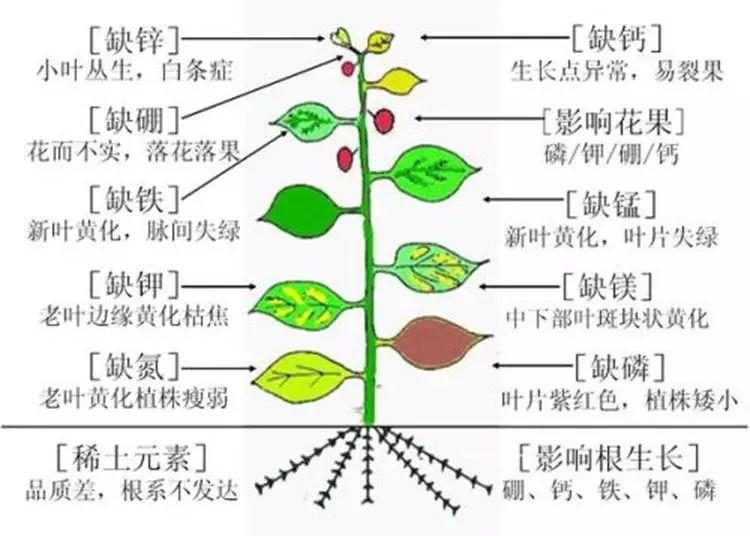News
Effects of trace elements in [agricultural technology knowledge] on the quality of agricultural products and human health
At present, the state is paying more and more attention to food safety, soil environment and national health. China's grain production is gradually moving from the pursuit of output to the pursuit of quality and safety. The importance of medium and trace elements is becoming increasingly prominent. With the implementation of the Rural Revitalization Strategy and the strategy of revitalizing agriculture by quality, fertilizers containing medium and trace elements have ushered in major opportunities. What are the effects of medium and trace elements on the quality of agricultural products and human health?
1. Calcium: calcium is not only a component of cell membrane, but also a component of pectin. Therefore, calcium deficiency will not only increase the permeability of cell membrane, but also make the cell wall cross-linked and disintegrated, but also cause umbilical rot of tomato, pepper and watermelon, bitter pox and water heart disease of apple, which will greatly affect the quality of agricultural products. Calcium application can increase the calcium content of forage, improve its nutritional value to livestock, and increase the Storability of agricultural products. In addition, calcium is an obviously insufficient element in human food. Calcium application is also very important to improve the calcium content of plant food and promote human health.
2. Magnesium: the content of magnesium is also an important quality standard of agricultural products. When the magnesium content of forage grass is insufficient, it can lead to magnesium deficiency of feeding animals and animal spasm. When the magnesium content in human diet is insufficient, it will lead to iron deficiency syndrome, such as allergy, sleepiness, fatigue, cold feet, systemic pain and so on. Applying magnesium fertilizer can not only increase the magnesium content of plant products, but also increase the contents of chlorophyll, carotene and carbohydrate, and prevent magnesium deficiency in human and livestock.
3. Sulfur: sulfur is an essential element for the synthesis of sulfur-containing amino acids such as cystine, cysteine and methionine. Lack of sulfur will reduce the biological value and edible value of protein. When the content of cysteine acid in cereal grains is low, the baking quality of flour will be reduced. Sulfur is also required for the synthesis of secondary substances (such as mustard oil and scallion oil) in some plants (such as onions and cruciferous plants). Therefore, sulfur application can increase the aroma and improve the quality of these plant products.
4. Boron: boron has an important effect on carbohydrate transport in plants. Therefore, an appropriate amount of boron fertilizer can improve the yield of sugarcane sugar. Boron application can also prevent "stem cracking" caused by boron deficiency and improve the quality of vegetables.
5. Zinc: zinc deficiency can delay the maturity of plants, thus affecting the quality of agricultural products. Low zinc content in food often causes children's loss of appetite, growth and development obstruction and so on. Zinc application can increase zinc content and yield of plant products and prevent zinc deficiency disease of human and livestock.
6. Iron: iron in green leaves (such as spinach) and grain is an important source of iron in human body. Iron deficiency can cause anemia, cerebral nervous system diseases, infectious diseases and bone abnormalities.
